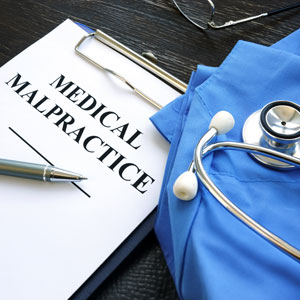Florida Doctor Accused Of False Skin Cancer Diagnoses
Medical MalpracticeAlthough Dr. Marder owns a 12,700-square-foot home valued at $28 million, it can’t legally be seized in FL. https://t.co/2ZtBRbIOMg
— Derm Media (@DermMedia) February 12, 2017
Dr. Gary Marder runs Marder Dermatology in Port St. Lucie, Florida and is reported to be accused of falsely diagnosing patients with skin cancer. After the diagnosis, patients were put through unnecessary medical treatments including radiation. News reports indicate that Dr. Marder made millions of dollars from insurance companies as a result of this practice.
Engaging In Unnecessary Medical Procedures
Upon reading the headline in the news about a Florida doctor who is accused of falsely diagnosing patients with skin cancer, the immediate reaction is whether there is a medical malpractice action available to plaintiffs in Florida who have been injured by such conduct. In addition a breach of the standard of care (which is the traditional medical malpractice case in Florida), Florida also has a statute for unnecessary diagnostic testing which provides its own separate remedy of recovering “reasonable attorney’s fees and costs” upon prevailing.
766.111 Engaging in unnecessary diagnostic testing; penalties.—
(1) No health care provider licensed pursuant to chapter 458, chapter 459, chapter 460, chapter 461, or chapter 466 shall order, procure, provide, or administer unnecessary diagnostic tests, which are not reasonably calculated to assist the health care provider in arriving at a diagnosis and treatment of a patient’s condition.
(2) A violation of this section shall be grounds for disciplinary action pursuant to s. 458.331, s. 459.015, s. 460.413, s. 461.013, or s. 466.028, as applicable.
(3) Any person who prevails in a suit brought against a health care provider predicated upon a violation of this section shall recover reasonable attorney’s fees and costs.
In this particular case, a doctor who falsely diagnoses patients may be responsible in fraud and traditional medical malpractice theories, diagnostic testing must also have been done (and the results likely falsified as well) to reach the purported diagnosis. When this happens, the statute allows the prevailing party to recover attorney fees and costs. The statute does not address whether the attorney fees and costs are for the entire action or whether they must be apportioned just to the allegations relevant to the unnecessary diagnostic testing.
In a case such this one, that might be a distinction without a difference because of the intertwined nature of the entire legal action. Neither a judge nor a jury may be able to separate out what portion is only attributable to unnecessary diagnostic testing because the entire diagnosis itself is false.
Concepts Borrowed From Other Areas Of Law
Therefore, a court could use the legal rationale behind the jury instruction on apportioning damages to a pre-existing injury to justify an award of all of a plaintiff’s attorney’s fees and costs for the action upon a finding of unnecessary diagnostic testing. That jury instruction for pre-existing injuries asks the jury if they can apportion between whatever degree of injury was pre-existing versus caused by the event which has been sued upon. If the jury is unable to make an apportionment, then the jury instruction requires the jury to award for the entire amount.
Talk To A Lakeland Medical Malpractice Attorney About Your Case
If you think that you might have a medical malpractice case against a doctor or if you think that your doctor has engaged in unnecessary medical testing, you should contact a Lakeland medical malpractice attorney to discuss what your legal options are under the circumstances. Every case is different and the damages to you are unique. A free appointment with an attorney can point you in the right direction. Call today to set up your free consultation.


